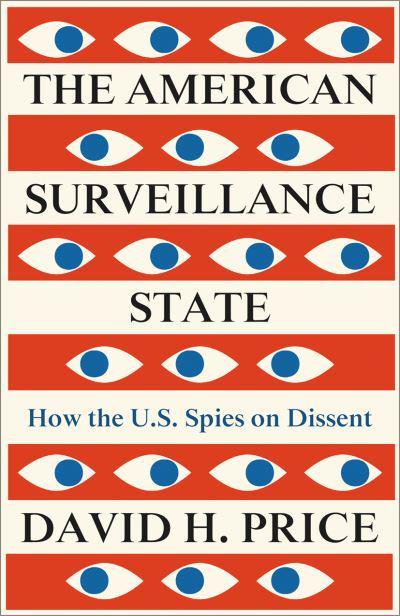The American surveillance
state how the U.S. spies on dissent
- ISBN: 9780745346014
- Editorial: Pluto Press
- Fecha de la edición: 2023
- Lugar de la edición: London. Reino Unido
- Encuadernación: Rústica
- Medidas: 22 cm
- Nº Pág.: 353
- Idiomas: Inglés

When the possibility of wiretapping first became known to Americans they were outraged. Now, in our post 9/11 world, it's accepted that corporations are vested with human rights, and government agencies and corporations use computers to monitor our private lives. David H. Price pulls back the curtain to reveal how the FBI and other government agencies have always functioned as the secret police of American capitalism up to today, where they luxuriate in a near-limitless NSA surveillance of all.
Price looks through a roster of campaigns by law enforcement, intelligence agencies and corporations to understand how we got here. Starting with J. Edgar Hoover and the early FBI's alignment with business, his access to 15,000 pages of never-before-seen FBI files shines a light on the surveillance of Edward Said, Andre Gunder Frank and Alexander Cockburn, Native American communists and progressive factory owners.
Price uncovers patterns of FBI monitoring and harassing of activists and public figures, providing the vital means for us to understanding how these new frightening surveillance operations are weaponised by powerful governmental agencies that remain largely shrouded in secrecy.
Part I: The Long View: Historical Perspectives of American Surveillance
1. J. Edgar Hoover and the FBI’s Institutionalization of Surveillance
2. Memory's Half-life: Notes on a Social History of Wiretapping in America.
3. The New Surveillance Normal: Government and Corporate Surveillance in the Age of Global Capitalism.
Part II: Lanting Those with a Communist Taint
4. The Dangers of Promoting Peace During Times of [Cold] War: Gene Weltfish, the FBI, & the 1949 Waldorf Astoria’s Cultural and Scientific Conference for World Peace
5. Tribal Communism Under Fire: Archie Phinney and the FBI
6. The FBI’s History of Undermining Legal Defenses: From Jury Panel Investigations to Defense Lawyer Surveillance Programs
7. Agents of Apartheid: Ruth First and the FBI’s Historical Role of Enforcing Inequality
Part III: Monitoring Pioneers and Public Intellectuals
8. How the FBI Spied on Edward Said
9. Seymour Melman: the FBI’s Persecution of the Demilitarization Movement
10. Traces of FBI Efforts to Deport a Radical Voice: On Alexander Cockburn’s FBI File
11. Medium Cool: Decades of FBI Surveillance of Haskell Wexler
12. Blind Whistling Phreaks and the FBI’s Historical Reliance on Phone Company Criminality
13. The FBI and Candy Man: Monitoring Fred Haley, A Voice of Reason During Times of Madness
14. David W. Conde, Lost CIA Critic and Cold War Seer
Part IV: Policing Global Inequality
15. E. A. Hooton and the Biosocial Facts of American Capitalism
16. Walt Whitman Rostow and FBI Attacks on Liberal Anti-Communism
17. André Gunder Frank, the FBI, and the Bureaucratic Exile of a Critical Mind.
18. Angel Palerm and the FBI: Monitoring a Voice of Independence at the Organization of American States
19. The FBI’s Pursuit of Saul Landau: Portrait of the Radical as a Young Man










